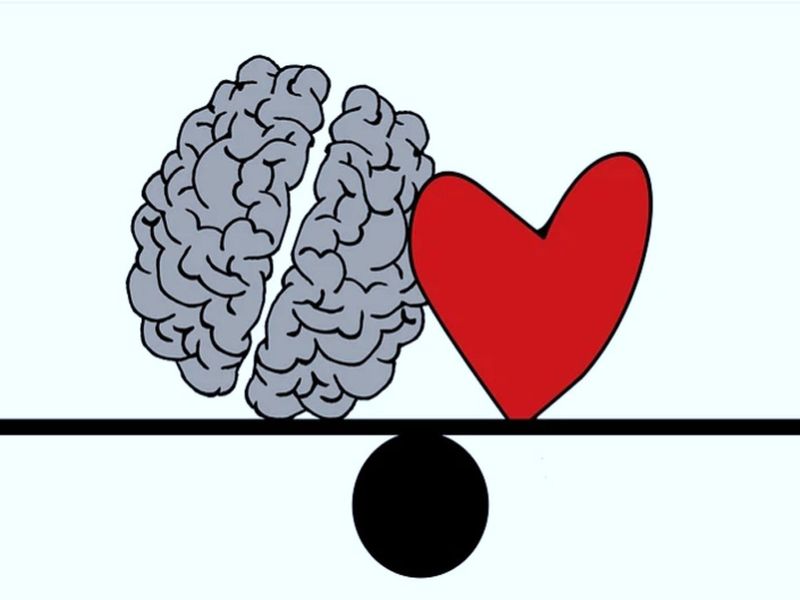
Highlights
The article explores the psychology behind irrational spending, how to keep it in check and how to spend money wisely.
Dubai: When it comes to spending money, we often fall victim to many of these classic money blunders. The rationalisations for spending money we come up with are remarkably consistent, and we can recognise these while they're happening.
The next time you find yourself using one of the following excuses, stop and ask yourself if you're rationalising your spending.
Rationalisation #1: "It's a special occasion!" - A common rationalisation is when you spend money to celebrate, whether you're marking a milestone birthday, giving holiday gifts to your loved ones, or commemorating a major life change like marriage or graduation.
However, as good as it feels in the moment to spend money for these reasons, special occasion bills are just as painful to pay as any others. The validation you may feel momentarily will have faded by the time your credit card payment is due.
If you find yourself excusing your overspending because it's for something special, briefly pause and think about what it is you truly want to get out of the occasion. Once you've figured that out, you can then determine how to do so without overspending.

Rationalisation #2: "This will save me money" - Another common instance is when you go to buy a single item but you end up buying a whole set of related items, after you are convinced you are saving money in the process. Here’s an example.
Let’s say you go to the store to buy a single wrench that you needed for a home project. Buying the single wrench would've set you back about Dh15. But when you get to the store, you found a 44-piece wrench set with every possible size you could ever need.
The set cost Dh199, but you would be glad when considering that the wrench you needed in the set only costs you Dh4.50. By spending Dh185 more than you planned, you saved Dh10.50 on the particular wrench you needed.
We often rationalise a purchase with this kind of thinking. We tell ourselves that spending money we didn't intend to spend will somehow save us money in the future. And retailers are fully aware of our tendency to rationalise purchases as a way of saving money.
• Do I need this item?
• Would I buy it if it weren't on sale or if it couldn't save me money?
• Can I afford it?

Rationalisation #3: "I need this!" - Knowing the difference between needs and wants is the basis of personal finance literacy. Recognising that you must prioritise your needs over your wants is the cornerstone of basic budgeting, and most people are well aware of the importance of doing this.
The problem with the needs-versus-wants education is that it provides us with another ready-made rationalisation for spending. Anytime we can convince ourselves that we need an item, there is very little to stop us from overspending.
For instance, let's say your old car is nearing its term of use. You need to get a new car because you have to have reliable transportation to get to work. But let’s say you convince yourself that you need a brand new car rather than a reliable used one.
This is a clear case of where you’ve tacked a want onto your legitimate need in order to justify your overspending to yourself. To avoid this rationalisation, financial planners remind that you consider if your need could be fulfilled with a less expensive option.
Rationalisation #4: "It's only DhX": Spending a little bit of unexpected money can feel like no big deal, since you're only parting with Dh5 or Dh10. If this only happens every once in a while, you might chalk it up to the cost of living.
However, there are problems with the "It's only DhX" rationalisation. The first is that small amounts add up quickly. You can rationalise your way into some pretty hefty spending a couple of dirhams at a time.

In addition, what you consider a small amount of money changes with your budget. As you earn more money, you may go from thinking "It's only Dh5" to "It's only Dh50".
While you may have the income to absorb such a change in your "It's only" thinking, you're still spending more than you planned and it will add up even quicker at a higher income level.
If you find yourself rationalising a purchase with "It's only DhX", ask yourself what else you could do with the money. Thinking through what the loss of that money actually means to you can help you overcome the rationalisation.
Key takeaway? Shifting from rationalising to rational: Making excuses for our less-than-ideal choices may be human, but it's not the best way to manage your money, financial planners reiterate. Taking the time to ask yourself why you're making the choices you are can help to end your rationalisations and start looking at your finances more rationally.
Why do such rationalisations occur? Here are 5 reasons
Let’s now understand the psychology of irrational spending and how to combat them!
Psychologists have often observed a consistent pattern of thinking when we spend money, which is commonly referred to as cognitive bias.
Most of us fall victim to systematic errors in logical thinking known as cognitive biases. This is when our brains have trouble recognising when we are about to make a logical error, and it's only in hindsight that we realise we have made a mistake.

Fortunately, once you are aware of your cognitive biases, it is easier to combat their influence. Here are five cognitive biases that are working to keep you poor, and ways you can bypass their effect on your behaviour.
1. Anchoring
Determining an appropriate price for a purchase could be exhausting, if you were to do research on how much every single vendor is charging for the same item. To save ourselves from such effort, our brains take a shortcut known as anchoring. The anchor is a price point that gives you an idea of how much something should cost.
For instance, let's say you are interested in hiring a personal trainer. The first trainer you call charges Dh60 for 30-minute sessions. The second trainer you call charges Dh70 for 30-minute sessions. Clearly the first trainer is the better financial choice, right?
Actually, based on the information you have, you have to ask yourself if that is really the case. With further research, you might find that both of the trainers you called are overcharging since the majority of trainers in your area charge Dh30 per 30-minute session.
Since you do not have an anchor point in your mind when you start researching personal trainers, you assume that Dh60 is a reasonable price — making Dh70 too high a price to pay — even if neither of those amounts have anything to do with what most customers are paying.
Anchor points are very difficult to ignore, because it can be tough for you to remember that the anchor price you are thinking of does not necessarily reflect how much something should cost.
This suggestion comes from the book ‘Your Money or Your Life’. In this book, the authors point out that time is money, since you trade your time away in order to earn money. And while money is fungible (that is, replaceable), your time is finite and gone once it's spent.
We may feel like we deserve the latest gadget — but remembering just how much of our lives we would have to give up for it can help us remember to only spend on the things that truly reflect our goals.

2. The Availability Heuristic
The availability heuristic is a kind of memory shortcut that helps you determine how likely something is. Your brain assumes that things you can easily recall are more probable than things that are hazier.
For instance, you are probably much more nervous when you board an airplane than you are when you get in the car, despite the fact that there are car fatalities daily, while air travel is comparatively one of the safest modes of transportation.
When it comes to our finances, the Availability Heuristic leads us to believe that winning the lottery, or making a big profit on the stock market are all more likely than they are.
Since we can remember the names and stories of individuals who have gotten rich in these ways — and we don't remember the stories of people quietly amassing a small fortune through savings and frugal living — we think our own chances are better in risky financial situations.
It is also helpful to spend time educating yourself on financial statistics to help you understand when your reaction is irrational.

3. Hedonic Adaptation
Hedonic adaptation describes the phenomenon wherein we get used to the things we have. What you would have felt upon first purchasing your car would have faded before the new car smell had completely dissipated. This happens because our brains are wired to get used to things fairly quickly.
This means that no purchase will permanently satisfy us, and if we're not careful, we're likely to keep reaching for another thing to buy that will offer momentary pleasure or satisfaction.
But it is only a matter of time before the new purchase also becomes old news, spurring another purchase to keep the pleasure going.
This cognitive bias also helps explain why it is so easy for you to become just as financially stressed after a major pay raise or other financial increase as you were at the lower level.
When the things that were rare treats when you were earning less become a standard part of your life, you enjoy them less, but you are also less willing to give them up.
Once you recognise Hedonic Adaptation, you need to use it to curb your desire for a bigger home, a nicer car, a bigger TV, or better gadgets.
Now, this doesn’t mean you never go out and buy anything nice, but you can take the knowledge of Hedonic Adaptation and think about how important this next big purchase you’re considering is.

4. Hyperbolic Discounting
Let's say you were offered Dh100 right now, or Dh110 in 10 days. Which would you prefer? If you're like most people, you'll take the money today, even though a relatively short wait would earn you 10 per cent more.
It is human nature to prefer something to happen immediately, rather than wait patiently for a larger reward later. This preference for instant gratification is a cognitive bias known as ‘Hyperbolic Discounting’.
Our brains ‘discount’ something that will happen in the future as less important than something that is happening in the here-and-now.
It's the reason why you can decide on January 1 that you want to pay off your credit card debt in the New Year, and find yourself charging Dh200 worth of new leisure items less than a month later. The debt payoff is so far away, and the leisure items are tempting you right now.
Hyperbolic Discounting causes us to push today's consequences into the future. We decide that avoiding the consequence today means that the consequence is not our problem, even though it will be when the time comes. This is actually the very basis of credit card business practices.
Matter experts and psychologists explain how doing this can help you to see the issue more rationally and help you come to the decision that your future self will be glad you made.

5. The Restraint Bias
Most people tend to overestimate their own impulse control. This is why your decision to stop getting takeout instead of cooking at home is derailed when you drive past your favourite fast-food joint.
The Restraint Bias is often the culprit when you can't maintain your New Year's resolutions. When you were making the resolution, you were certain that you could restrain yourself around temptations.
You forgot that you will be just as flawed and human in the future as you have been in the past.
Key takeaway? Don't let your brain destroy your finances: Cognitive biases are a fact of life, but they don't have to destroy your financial security. Understanding the ways that your brain leads you astray is the first step in avoiding your most money-wasting errors in logic.












